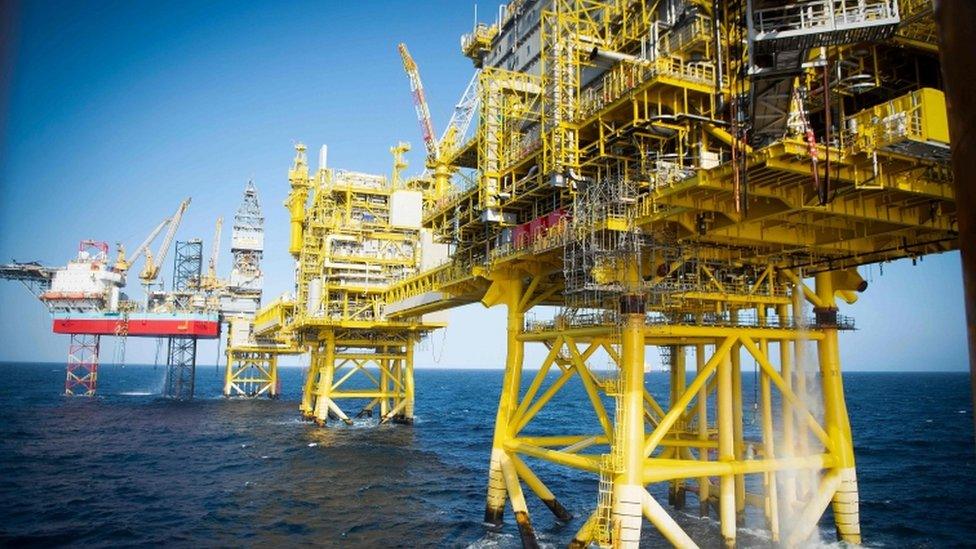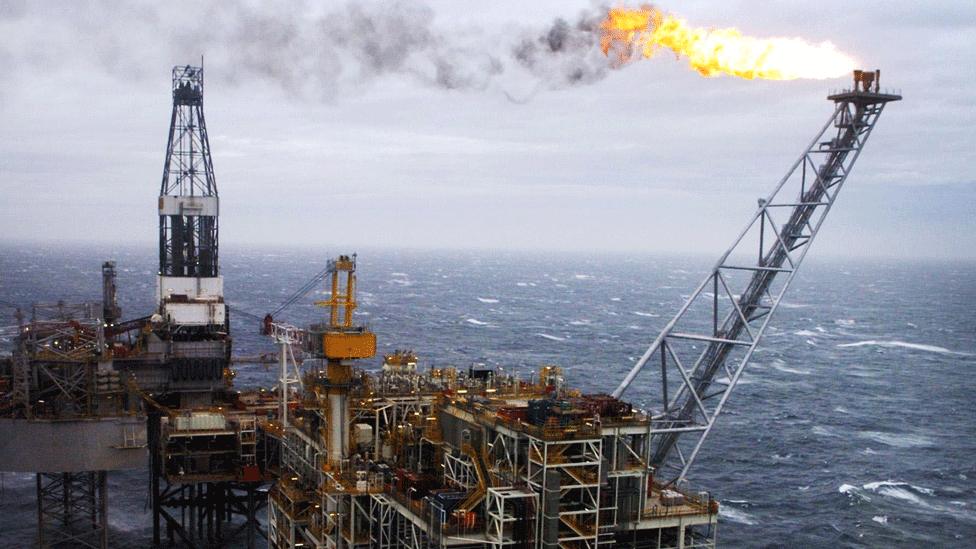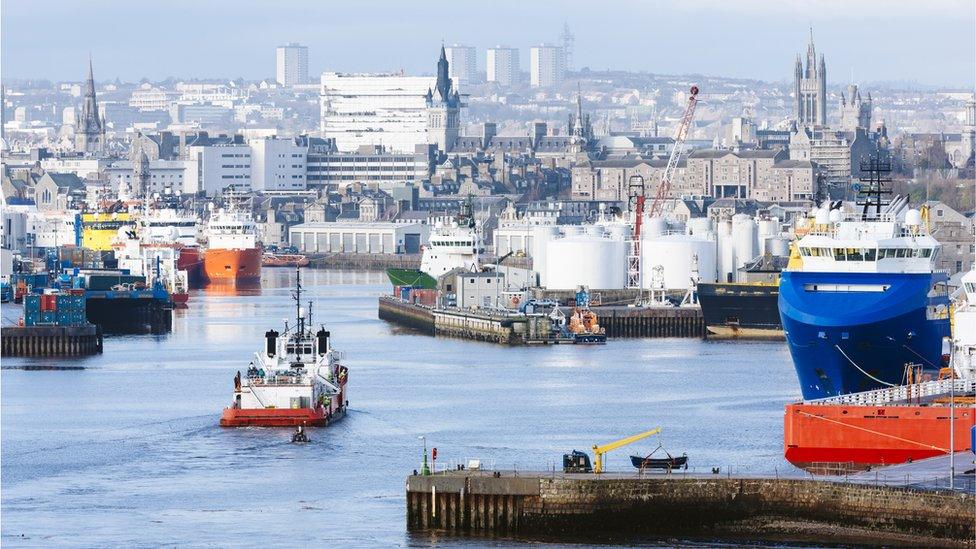Applications open for new North Sea oil and gas exploration
- Published

The Total Culzean platform is situated about 45 miles east of Aberdeen
The Oil and Gas Authority has opened up applications to explore in large areas of the North Sea and West of Shetland.
There are 768 blocks or part-blocks on offer across the main producing areas of the UK Continental Shelf (UKCS).
It is the 32nd round of licensing for exploratory drilling over more than 50 years, but the first since the UK committed to cutting greenhouse gas emissions to net zero by 2050.
WWF Scotland described the move as "totally irresponsible".
But the OGA said oil and gas were still seen as part of Britain's future energy mix.
"Maximising economic recovery from the UKCS is vital to meet our energy demands and reduce reliance on imports," it said.
WWF Scotland director Lang Banks said that opening up more areas for oil and gas exploration "undermines other efforts to tackle the climate emergency".
He added: "We instead need to see a just transition that enables us to harness the engineering skills currently deployed in the oil and gas industry and apply them to supporting a range of cleaner forms of energy production."
A new aspect of the latest licensing round includes co-operation on license timing with the Faroe Islands government.
The authority has also provided access to a huge data bank of information, external from past drilling of thousands of wells, seismic surveys of the seabed and pipelines.
Such information is valuable in increasing the chances of finding oil and gas, and reducing financial risk.
An industry report in November 2018 estimated the UK has enough oil reserves to sustain production for the next 20 years and beyond.
The closing date for applications is 12 November, 2019, with decisions expected to be made in the second quarter of 2020.
- Published11 March 2019

- Published14 November 2018

- Published24 October 2018
